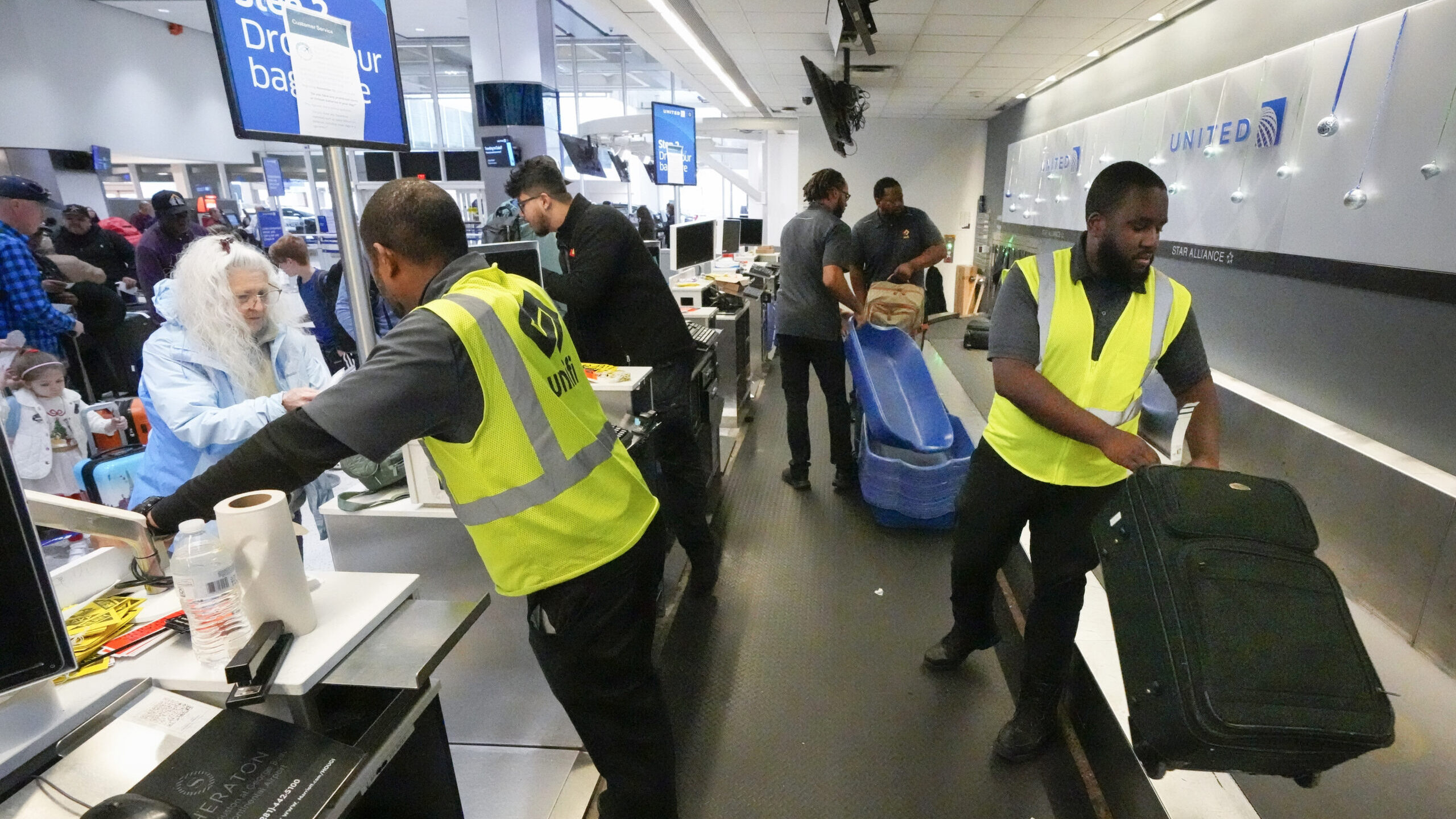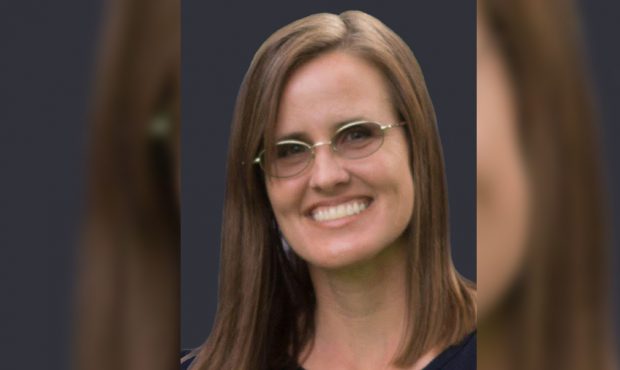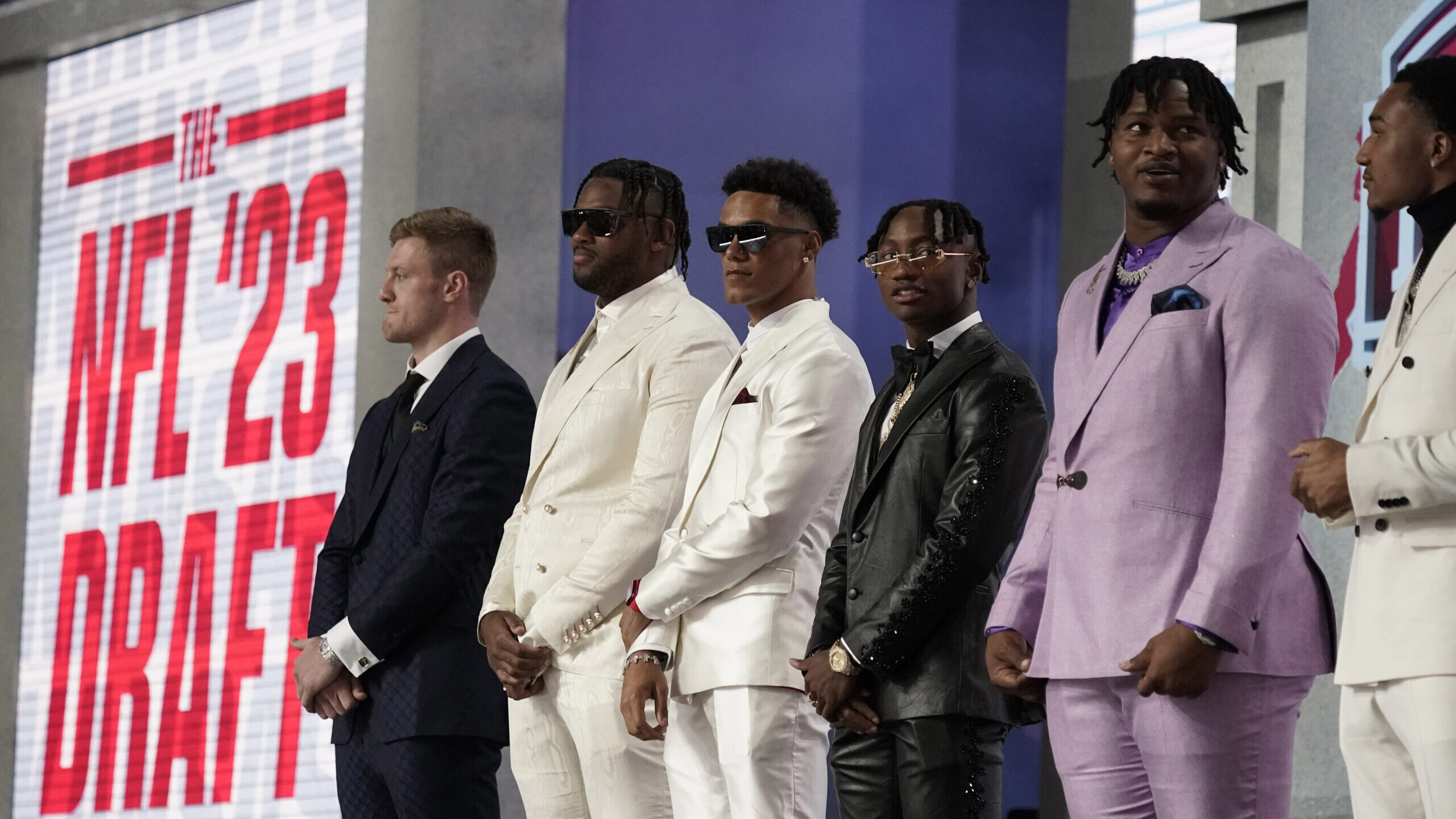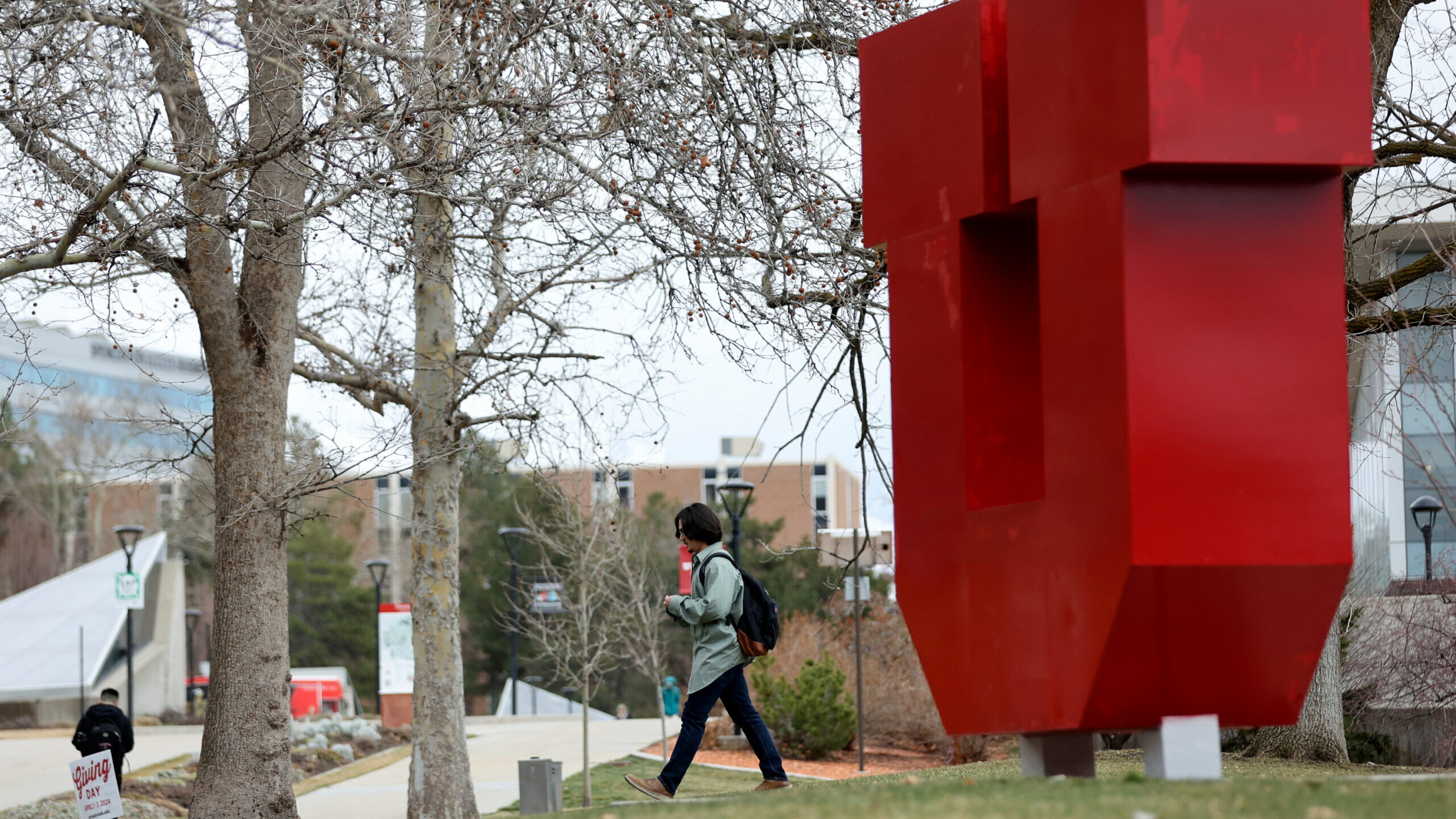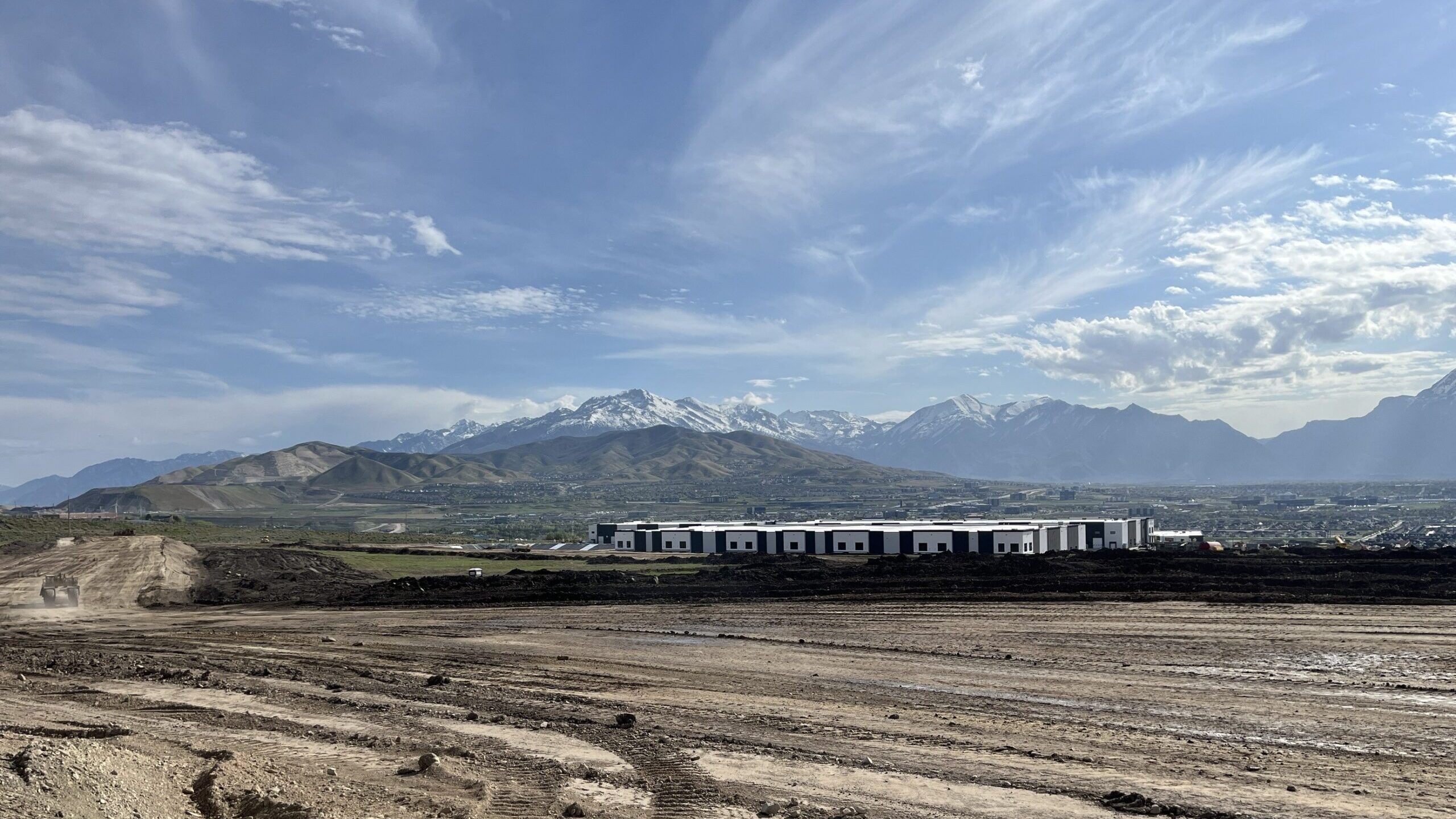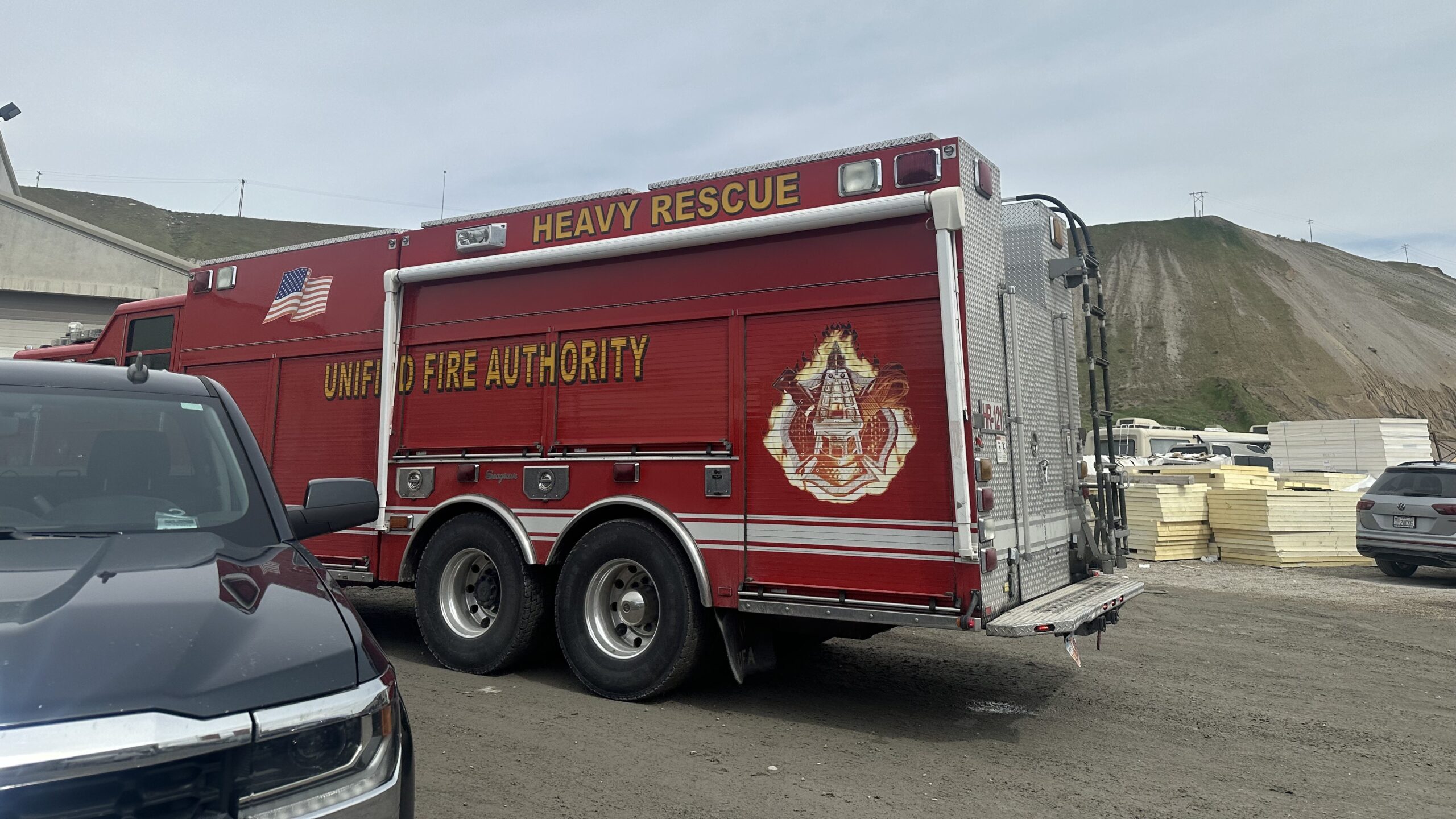UHP trooper offers in-depth look at life as a black police officer
Jun 10, 2020, 5:19 PM | Updated: Dec 30, 2022, 11:25 am
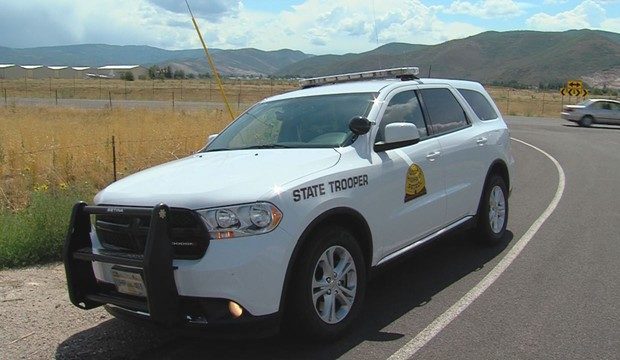
File photo: KSL.com
SALT LAKE CITY — Tensions are high across the country as demonstrators protest what they see as systemic racism within police organizations. But what is it like to be a black police officer — a state trooper of color?
A Utah Highway Patrol trooper who is African-American joined KSL Newsradio’s Dave & Dujanovic to talk about his experience in-depth.
Protests in Utah remained mostly peaceful in recent days, more than a week after a protest in downtown Salt Lake City became violent. At a demonstration Wednesday morning outside the City-County Building, female minority members of the Utah Legislature spoke to crowds who stood quietly to listen, some of them with morning coffee and children in tow.
But one perspective seemingly missing from the coverage of the unrest nationwide is the perspective of a black police officer.
The perspective of a black police officer
Trooper Ivan Lofton has served with the Utah Highway Patrol for a little over two years, he told KSL NewsRadio on Wednesday.
“What made you want to become a trooper or a law enforcement officer?” co-host Debbie Dujanovic asked.
I’ve always wanted to be in law enforcement, from a young age,” Lofton, who grew up in Missouri, said. “I loved helping people at a young age and then as I continue to grow older, the narrative or the reason why changed — when I got older and saw the impact I could have. I wanted to be a positive role model for children of all races because you don’t – from back home, where I’m from, you don’t really see a lot of minority law enforcement officers.”
Lofton does not support looting, violence or other illegal activity. But he says he understands why people are angry enough to cross that line.
“I can say that I understand why [looting and violence] has happened,” Lofton said. “Silent protest after silent protest and these things are still going on today in our country. But it’s not right to do those things.”
Lofton believes the vast majority of those protesting are peaceful and law-abiding.
“I just talk to people just like I would want to be talked to”
The trooper says his own interactions with the public, when making arrests, have not subjected him to racially-motivated anger or violence.
“I just talk to people just like I would want to be talked to,” he said. “There’s no need to or no reason to be aggressive for no reason or talk down to somebody. They made a mistake. That doesn’t mean that they are a horrible person. Just means that they made a mistake.”
Likewise, he does not feel any of his coworkers treat him differently as a black police officer.
“I wouldn’t be in this department if I felt that it was a problem where there was any racial issues or people thought a different way. I feel like every trooper that I work with in the department represents Utah in a great way and I don’t feel that we have problems that other states might have in the country, or other cities,” Lofton said.
Race and use of force issues
Lofton’s experience has not led him to believe there are problems with the use of force or with race in the Utah Highway Patrol. But he believes people of color more frequently face use of force in some parts of the country and even the state.
“It is a problem in some places,” Lofton said. “But for the most part officers have to go home — they want to go home to their families just like anybody else.”
He does not believe the officers involved in the death of George Floyd, who died after a Minnesota police officer knelt on his neck for nearly nine minutes, represent the majority of law enforcement or even close to it.
“There are a lot of good law enforcement officers out there in the world,” he said, adding that the actions of a few should not reflect on the many who protect and serve.
When the uniform comes off
Lofton said his experience varies greatly when he does not wear his uniform.
With his uniform on, Lofton says he frequently encounters people who thank him for his service and treat him with respect. And most of the time, he says, that’s true in his street clothes.
For the most part, people are cordial here in Utah. People do the right thing, people are respectful. But there are those that I feel look down on me, won’t speak to me, won’t look me in my eye, just judge me,” Lofton said. “I was taught, ‘Never judge a book by its cover.’ And I think sometimes I do get judged as a ‘cover’ instead of people trying to talk to me.”
Lofton says that type of treatment happens only rarely to him. But stories from other people of color subjected to harassment and hate crimes trouble him.
The data is hard to find
A U.S. Commission on Civil Rights review of the use of force noted in 2018 that “Accurate and comprehensive data regarding police uses of force is generally not available to police departments or the American public.”
The United States doesn’t have a database that collects the information on a national scale, which means reporting can vary wildly from state to state and city to city. Different police departments track the use of force differently.
However, the information that does exist suggests people of color and other at-risk groups are more likely to encounter the use of force.
“The best available evidence reflects high rates of uses of force nationally, with increased likelihood of police use of force against people of color, people with disabilities, LGBT people, people with mental health concerns, people with low incomes, and those at the intersection of these communities,” the Commission on Civil Rights report continued.
The data we have
In a speech at Georgetown University in 2015, then-FBI Director James Comey highlighted the lack of data.
“Not long after riots broke out in Ferguson late last summer, I asked my staff to tell me how many people shot by police were African-American in this country. I wanted to see trends, I wanted to see information. They couldn’t give it to me, and it wasn’t their fault,” Comey said. “Demographic data regarding officer-involved shootings is not consistently reported to us through our Uniform Crime Reporting Program. Because reporting is voluntary, our data is incomplete and therefore, in the aggregate, unreliable.”
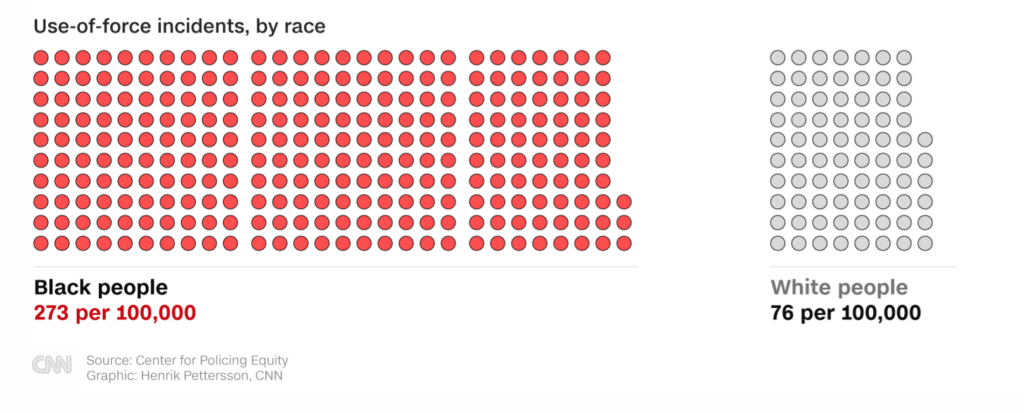
Black people were more likely to face use of force than white people in this data from 2016. Graphic: CNN
Even without race, we know more people die in police custody in the United States than anywhere else in the world. And more Americans wind up arrested, period, than people in other countries.
However, looking at the available data from 2016, after the FBI ramped up its data collection for use of force cases, the numbers show a racial disparity. Black people were more likely to encounter the use of force from a police officer, and more likely to die than their white counterparts.
You can listen to the entire interview with Trooper Ivan Lofton, here:


